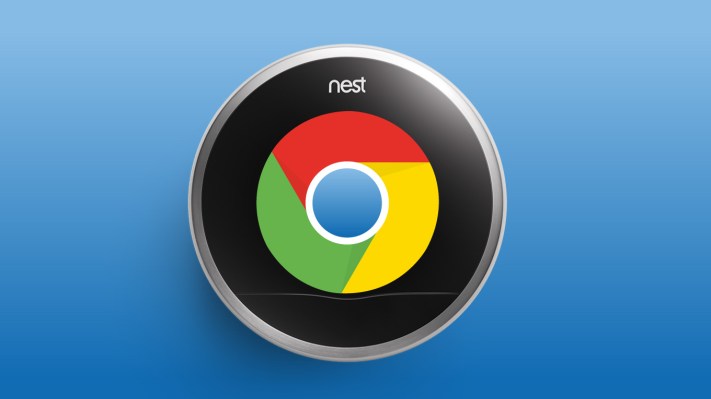Update: Google provided the following statement to TechCrunch, clarifying the SEC document described below –
“We are in contact with the SEC to clarify the language in this 2013 filing, which does not reflect Google’s product roadmap. Nest, which we acquired after this filing was made, does not have an ads-based model and has never had any such plans.”
When Google acquired Nest, there were a lot of jokes made about a thermometer serving you ads, many of which were only half kidding. Now, Google has stated in plain English that it does see a future where it could be serving ads on thermostats, as well as on “refrigerators, car dashboards, […] glasses, and watches,” which is only a partial list of the places it imagines its advertising content might appear in the future.
The statement comes from a letter Google sent to the SEC in December discovered by the Wall Street Journal, which was made public this week. Google is justifying its decision not to break out revenue generated from mobile devices, since the so-called ‘mobile’ category is shifting and in the process of changing every day. Eventually, Google basically notes, its services and ads might span just about every kind of hardware with a display and Internet connection. That’s probably a pretty fair appraisal of where things are headed with the future of smart homes and devices, but it’s still unusual to see Google talking about it so directly.
In the end, no one should be surprised that Google is open to the possibility of translating its most successful, core business (ads) to some of its recent, more experimental lines of business (Nest). Despite both companies noting early on in the relationship that initially Nest data and devices would be used only for Nest customer purposes, Google would simply be a bad, short-sighted business if it hadn’t considered how the Nest piece fit into its overall business down the road.
Also, Google is clearly picturing a world here where Android or some variant thereof powers a much wider range of devices than it does currently. It’s logical to assume that as more gadgets use its mobile OS to power their connected features and provide their software underpinnings that Google would naturally serve ads there, just as it does on Android smartphones and the web.
In short, don’t go pitching your Nest thermostat into the sea or whatever just yet. Google may serve ads to your climate control unit in the future, but at that point it probably won’t be as jarring as you expect, and it could also come with considerable benefits to the user to in exchange for the privilege.
